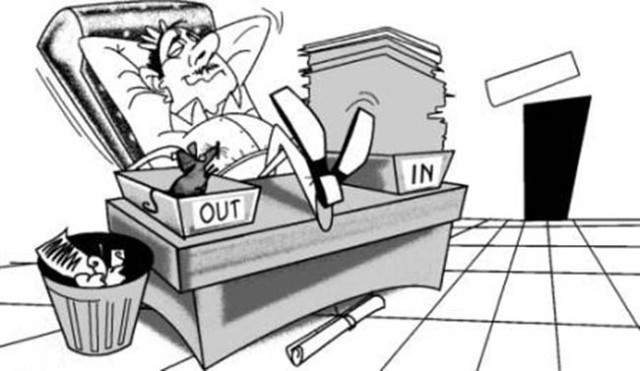“The reason for non-utilization is shocking and scandalous. The entire state does not possess a single rifle which can fire this ammunition. The ammunition is used in medium machineguns (generally used by the military), it is not used by any police force in any state in this country,”[1]
In 2011, the Maharashtra State Government procured ammunition for guns that are not owned by any police force in the country. The cost incurred on the same is Rs. 100 crore, and the bullets are now rotting in a godown. In stark contrast to the same, our army, Border security, paramilitary and police are suffering from a crippling shortage of arms and ammunition.
It raises the question–who was the person who ordered this ammunition, and with what authority? Perhaps more importantly, who pays for this lapse other than the taxpayer? Worryingly, does anybody even care?
Personal accountability of public officers is not a concept in India. Exemplary performance and shocking lapses are scarcely recognized and poorly rewarded or vilified, while extraneous considerations form the basis of transfers and promotions across the board. The system, while reducing the bureaucracy to mere paper pushers, has also effectively shunned innovation, merit and pioneering thinking. Without personal incentive and recognition, why would anybody want to push the envelope? Conversely, in absence of any personal liability, what stops them from making errors inadvertently or deliberately, knowing that promotions are due when they are due, irrespective of contribution?
The case of the wrong bullets could just be a gross error, or it could be a case of sleaze and corruption between a manufacturer, an agent, and a bureaucrat who enabled the deal. While everybody gets their cut, nobody gets cut. Win-Win.
In this day and age as the bureaucracy swells, our systems and internal checks need to be vigorously strengthened to ensure that our funds are directed correctly, and errors are punished with directed personal liability of the offending officer. It also begs to bring in rewards for jobs well done, and most importantly, growth for implementation of pioneering ideas in a system infamous for its inertia and inefficiency.
It could be argued that this personal liability would also go a long way in removing the disconnect between planning and implementation, between legislative action and executive action, and between expectation and reality. If a job is directed to a particular office or officer, the onus of getting the job done has to rest with the same office, or officer. Timely implementation leads to lower cost of production, greater public utility and consumption, and necessarily greater economic activity in the area. Implementation as planned also results in infrastructure lasting for at least its planned lifespan, and matching the infrastructural master plan of the district to permit planned development in the future.
This personal liability of the bureaucracy would also push for a strong bureaucracy, with professional growth linked to better work instead of blatant and all infecting nepotism. The current system has also created legions of officers who are scared of working simply due to pressure from political overlords not willing certain projects to be implemented due to vested interests. More importantly, on first principles, the measure would be instrumental in giving back the executive its rightful place in the three-tiered concept our Constitution originally envisioned.
Moving to public officers in the judiciary, it is a well-known phenomenon of judicial officers not working in the last few weeks of their tenure, just before they are due for promotion or retirement. It is also known that even mere suggestions of corruption against judicial officers can lead to charges of contempt, often leading to charges of blatant corruption not being brought up in the courtroom. The reason for the former is simple-one does not want to take any discussions that are politically controversial at the cusp of a managed promotion. The reason for the second-even mere charge of judicial impropriety devolves people’s faith in the justice system, so even laying allegations is discouraged.
Post retirement postings is another issue which begs discussion. It is settled that several officers of the court make biased decisions towards the end of their tenure to get bigger post retirement postings, which keeps them within the governmental system but comfortably out of regular public scrutiny.
In all three points, public accountability is killed. By not taking decisions, or by not calling out corruption for what it is, or by accepting this systemic bias which exists in the system, the Indian Public system is heading towards a looming collapse.
The personal accountability of public officers needs to be brought to the forefront of change that this nation is vying for. If the system is not accountable to the people, one could convincingly argue that Indian democracy is more myth than reality.
(Siddhant Kohli is currently a third year student of law looking to further a career in International litigation. He is interested in travelling, reading, and golf. )
***
[1] http://www.mumbaimirror.com/mumbai/others/Rs-100-crore-shot-to-smithereens-as-bullets-do-not-fit-the-barrels/articleshow/51368000.cms
Post Disclaimer
The opinions expressed in this essay are those of the authors. They do not purport to reflect the opinions or views of CCS.




